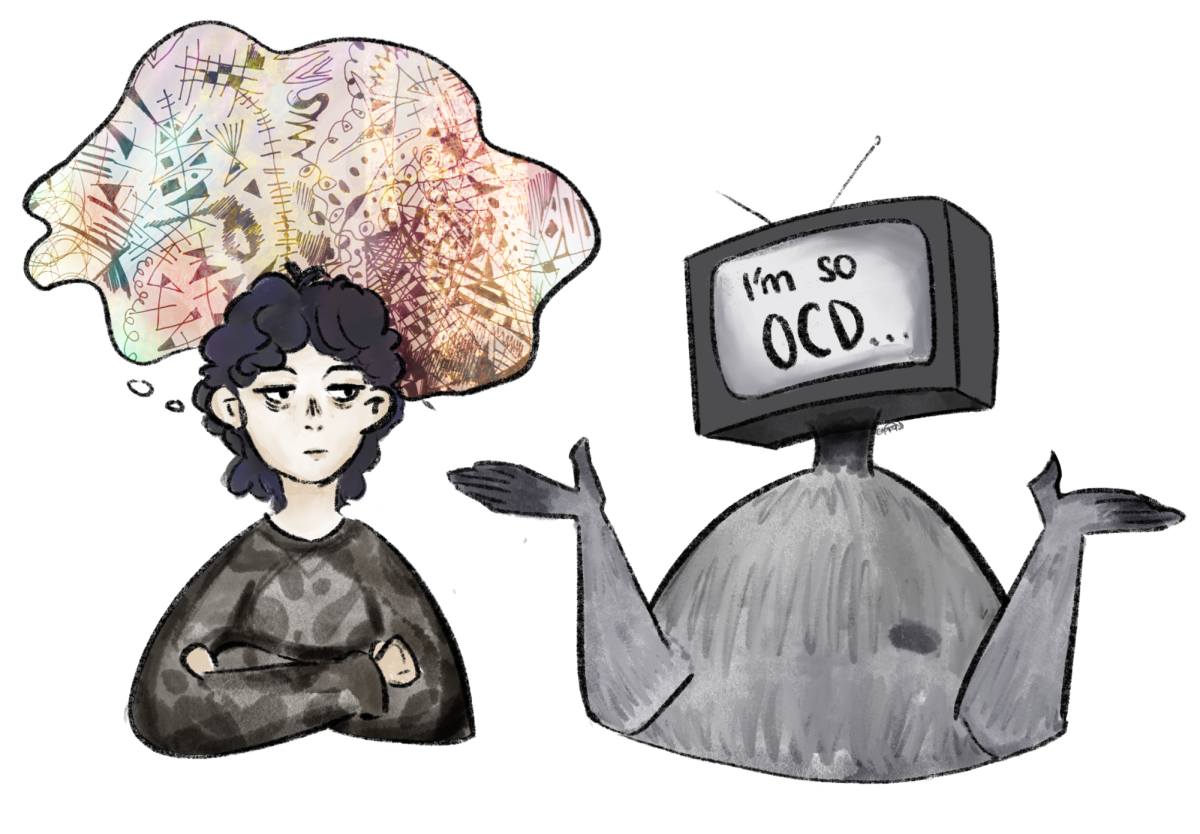I observe as she aligns her pens and notebooks with meticulous accuracy, ensuring each item on her desk occupies its designated space.
While recognizing her own display of arguably mild perfectionism, she proudly proclaims, “I’m so OCD.”
Not desiring confrontation, my eyebrows furrowed as I suppressed my overwhelming urge to correct her, yielding to her upsettingly nonchalant reference to Obsessive Compulsive Disorder.
This particular occurrence was just one among the numerous occasions where I observed the term “OCD” tossed around casually. These occurrences ranged from casual statements to quizzes that measure one’s “level” of OCD on the basis of one’s discomfort with out-of-place items, and even apparel blatantly mocking the disorder. With each careless reference, this disorder diminishes in significance and is reduced to a mere synonym of perfectionism and transformed into a joke.
The American Psychiatry Association characterizes OCD as a mental disorder consisting of recurring, intense, and unwanted thoughts, ideas or sensations, which are neutralized by compulsions.
This poses the question: how are we able to distinguish OCD from its societally twisted version?
OCD causes a noticeable functional impairment.
According to Michigan Medicine, people with OCD exhibit heightened activity in brain areas recognizing errors but diminished activity in regions aiding in impulse control. This suggests that while people with OCD are acutely aware of their irrational intrusive thoughts, a phenomenon known as cognitive fusion renders them helpless in controlling them. It entangles individuals with their thoughts, amplifying and trapping them in a vicious cycle of persistent and disturbing mental patterns that linger throughout their waking moments.
In an attempt to neutralize these thoughts, individuals feel the need to perform rituals (or compulsions), such as repeatedly using strong chemicals in fears of contamination, or excessively checking to affirm that they are not bad people because of their thoughts. These repetitive rituals are incredibly time-consuming and mentally draining, severely interfering with one’s work, relationships, and other normal aspects of life.
Thus, this is what OCD does not, by any means, do: serve as an advantage by causing a proclivity for cleanliness or organization.
People who use the term in a manner that deviates from its clinical definition are most likely not experiencing OCD. Conversely, individuals who are clinically diagnosed with OCD, myself included, would refrain from using it indifferently because we understand the debilitating anxiety, loss of identity, and grief that accompanies the disorder.
Do not be the reason someone hesitates to receive treatment because they dismiss their symptoms as perfectionism. Instead, think critically and educate yourself of the implications of your language before unintentionally belittling someone’s lived experiences and struggles, hindering their recovery process.






